The Note: Campaign takes late turn toward sharp contrasts
Wednesday night's debate made clear the intense next phase of the campaign.
The TAKE with Rick Klein
The Democratic race could still narrow quickly. But it won't end easily or quietly for anyone.
A largely tame primary has been jolted by the twin and somewhat related developments of Sen. Bernie Sanders' early rise and former Mayor Michael Bloomberg's early spending.
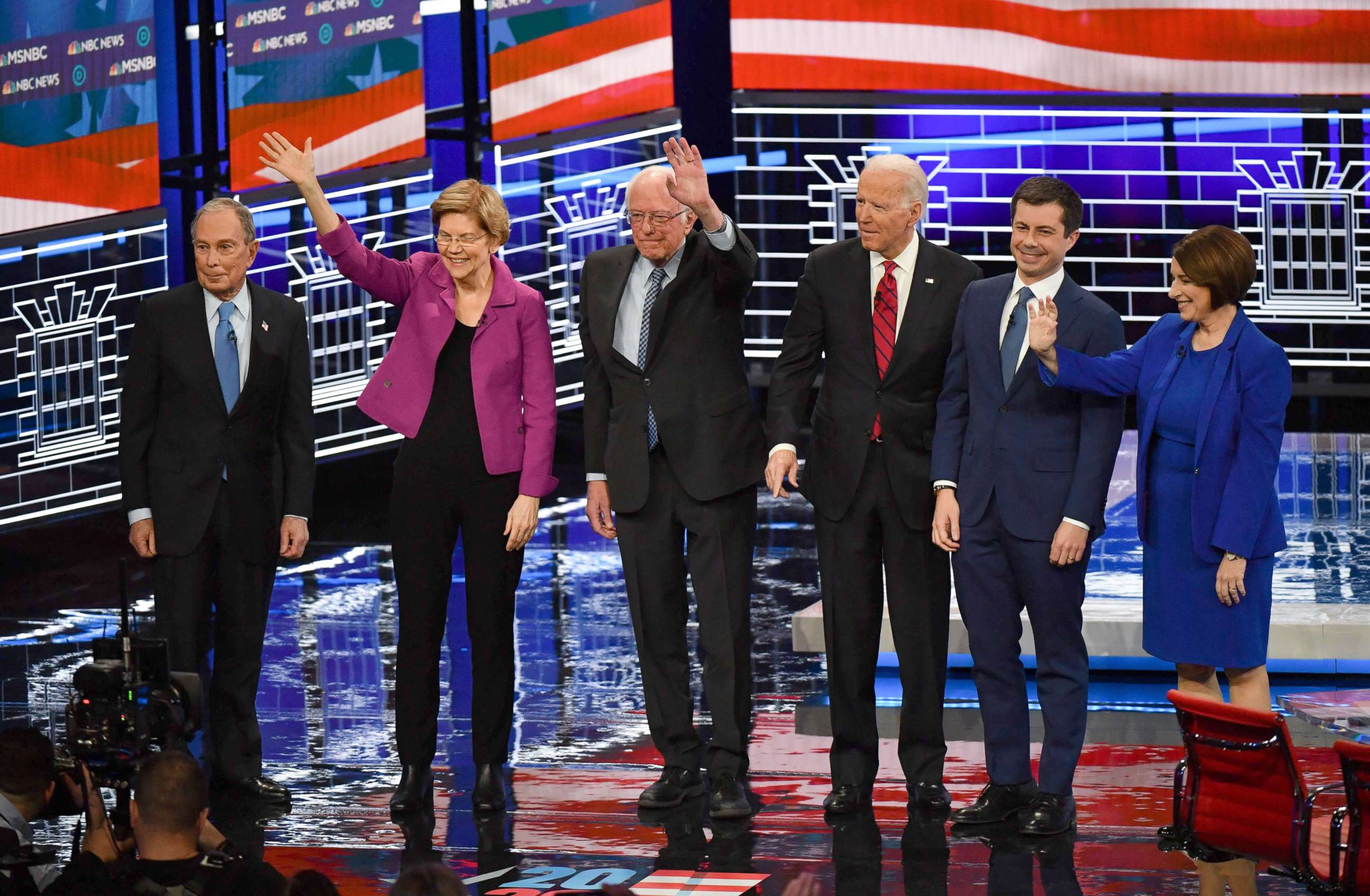
Now, as Wednesday night's debate made clear, the intense next phase of the campaign will be filled with the kinds of contrasts that seemed too small or petty to come up in polite campaign discourse to date.
Any Bloomberg swagger ended under intense attacks on virtually everything about who he is. Sanders also took more than his fair share of sharp attacks, amid skepticism about the wisdom of "revolution" at this moment.
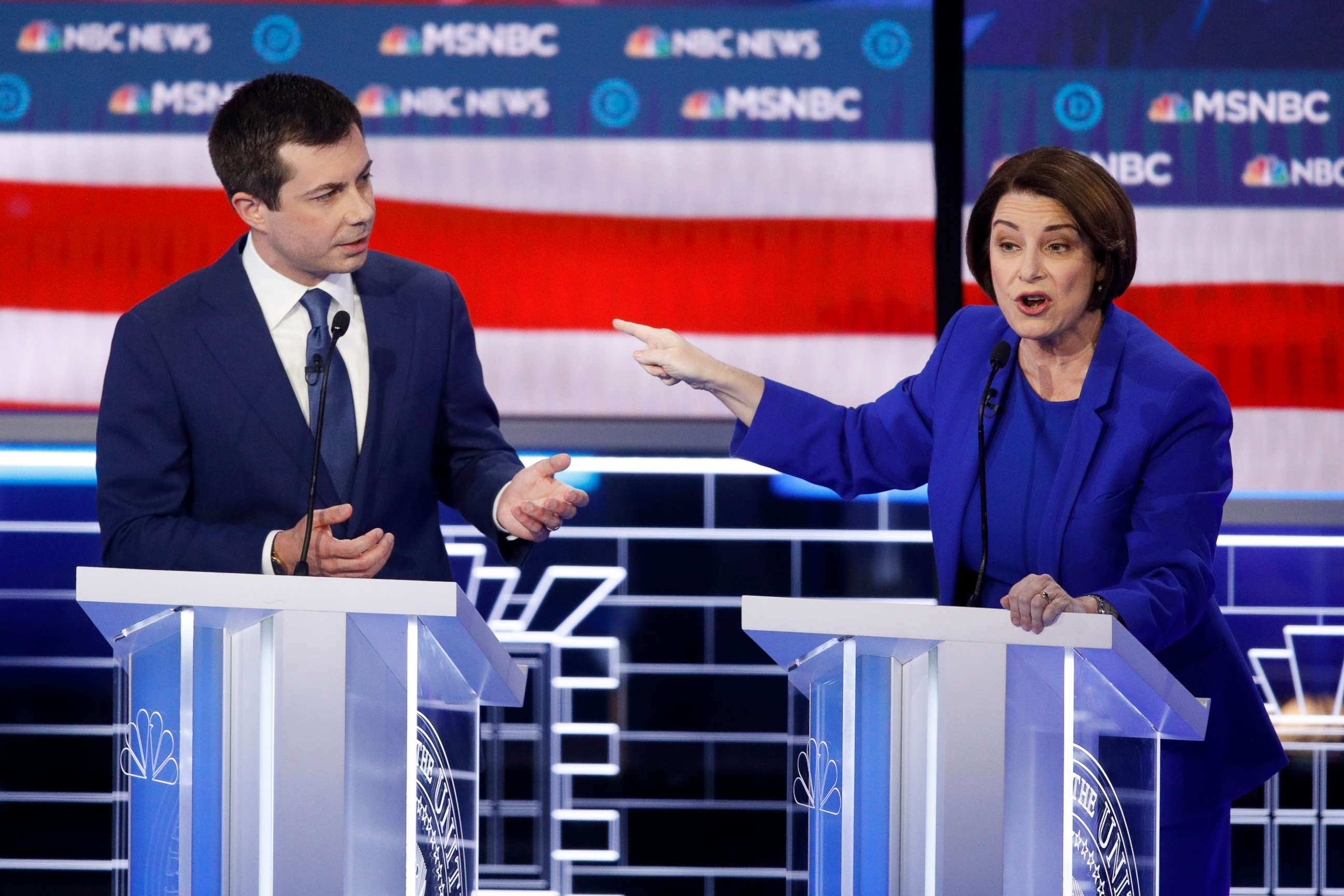
But the debate also featured Sen. Amy Klobuchar sparring with former Mayor Pete Buttigieg over experience, former Vice President Joe Biden wielding the Obama legacy against several rivals, and Sen. Elizabeth Warren unleashing all manner of attacks over the plans and visions of her rivals.
The next 10 days could make this a two-person race for most intents and purposes. But long-delayed attacks -- the kinds of things that in other cycles might have come up months ago -- will make the ride an unpredictable one.
The RUNDOWN with MaryAlice Parks
The Democratic candidates took shots at each other's policy proposals, past statements and leadership styles, but over and over they returned to the one major theme that has dominated this primary: electability. Repeatedly the conversation came back to who could win, not just who maybe should.
Bloomberg said right at the top what many Democrats in Washington fear, but rarely say out loud.
"I don't think there's any chance of the senator beating President Trump," he said about Sanders.
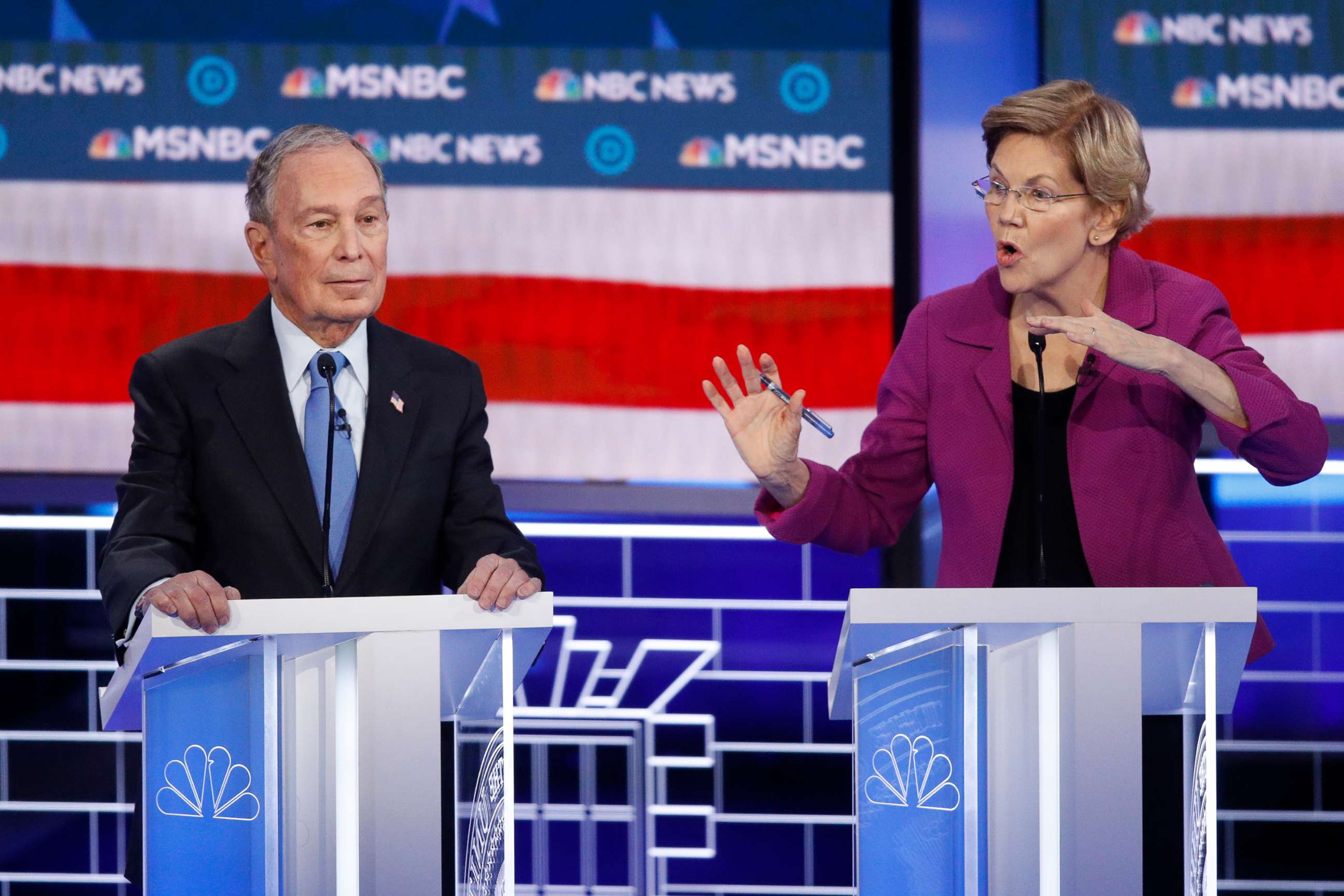
But others said a Bloomberg bid could be a risky bet too.
Warren argued that his personal past and business dealings could amount to electoral vulnerabilities.
"We are not going to beat Donald Trump with a man who has -- who knows how many -- nondisclosure agreements and the drip, drip, drip of stories of women saying they have been harassed and discriminated against. That's not what we do as Democrats," she said about the former mayor.
Sanders piled on Bloomberg too: "Mr. Bloomberg had policies in New York City of stop and frisk, which went after African American and Latino people in an outrageous way. That is not a way you're going to grow voter turnout."
Buttigieg argued both Sanders and Bloomberg were too "polarizing" to take a chance on.
They know nothing motivates a Democratic voter these days like a theory about how to win. The irony, of course, is that Democrats’ best shot at winning is sticking together.
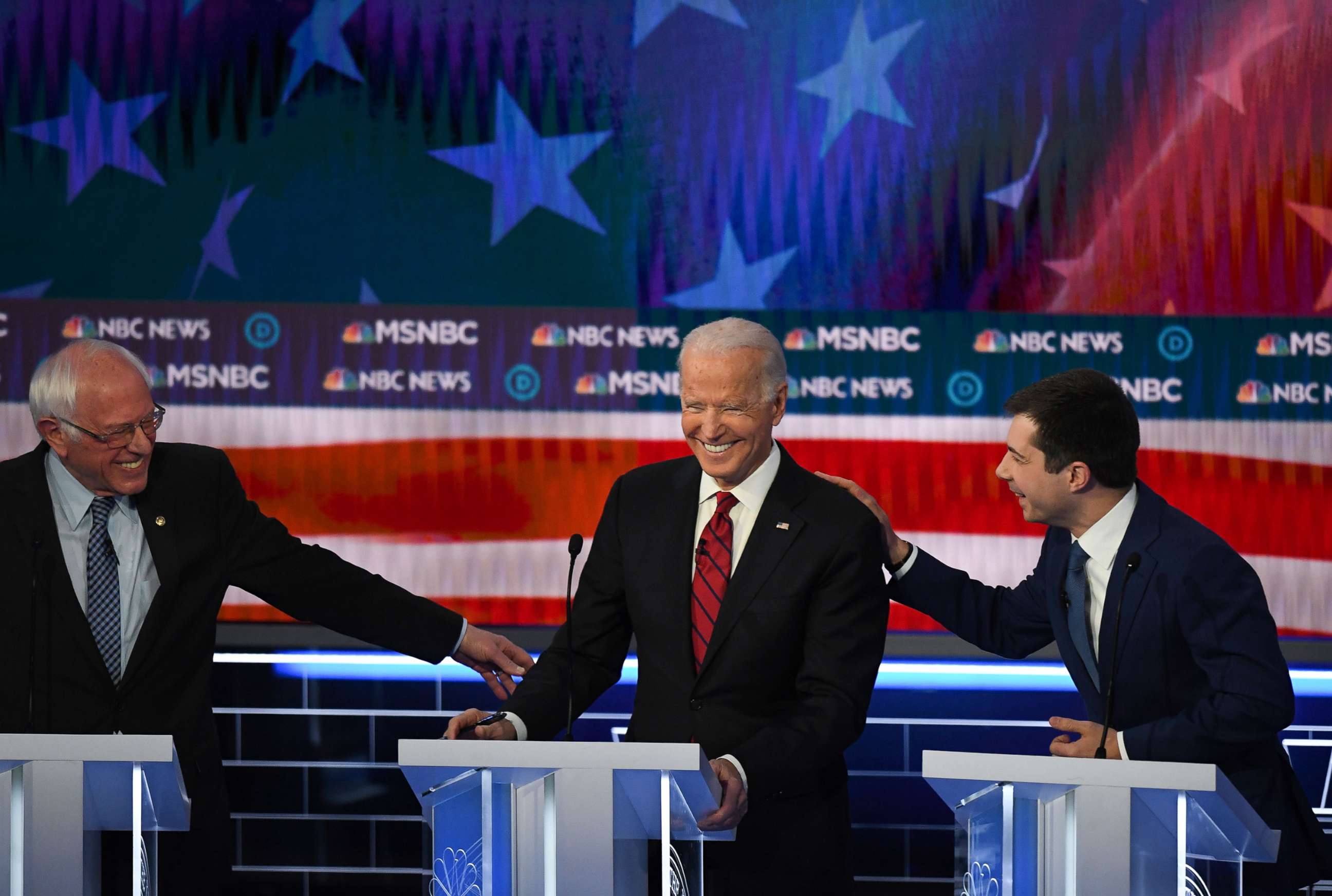
The TIP with Kendall Karson
Nevadans like to vote early. In 2018, Nevada was one of three states in which more early voters showed up to the polls than the overall total number of voters who cast ballots in 2014's midterms elections.
And 2020 is no different.
Just as the Democratic debate kicked off, the Nevada Democratic Party announced that almost 75,000 Nevadans voted early, bringing 2020's turnout to almost 90% of 2016's total caucus turnout, when about 84,000 people exercised their right to vote. In 2008, the first year Nevada moved to the forefront of campaign season, roughly 118,000 Democrats participated in the caucuses -- and 2020's turnout is already nearly 64% of 2008's total, thanks to early voters who were undeterred by hours of waiting in long lines.
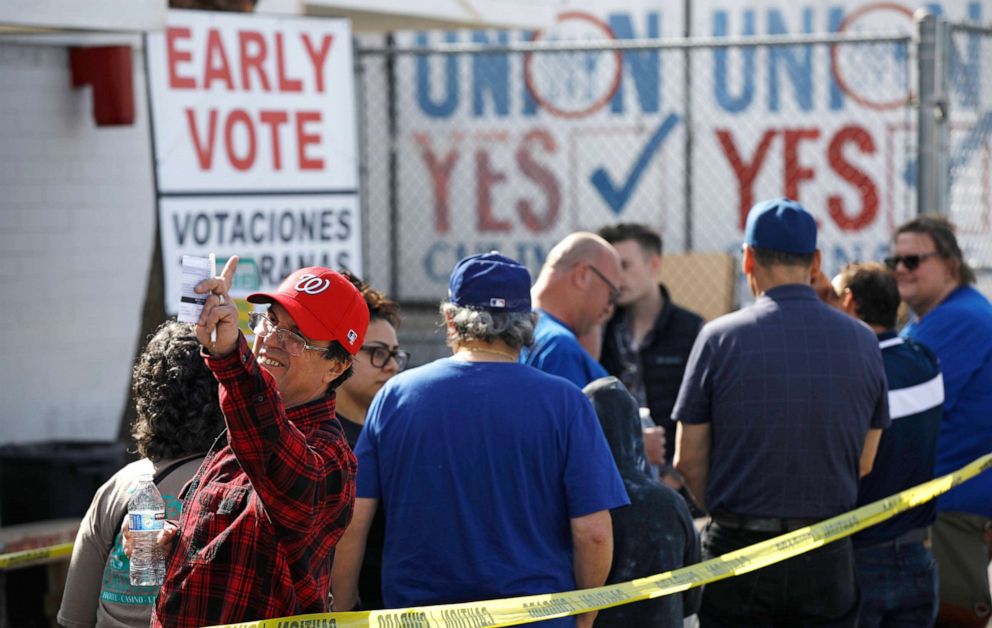
Nevada Democrats decided on implementing early voting for the first time this cycle after a push from the national party to expand access to the caucuses in 2020, offering Nevadans the option to cast their ballot early through a ranked-choice system that mirrors the caucus process. Ahead of Saturday's in-person caucuses at traditional precincts, the party opened 80 early voting sites over four days, with some in middle and high schools, union halls, casinos and on tribal reservations.
ONE MORE THING
Sen. Elizabeth Warren, D-Mass., and Sen. Amy Klobuchar, D-Minn., are getting last-minute boosts ahead of the Nevada caucuses in the form of six-figure ads from new super PACs. "Persist" has committed to Warren and "Kitchen Table Conversations" to Klobuchar. The funding comes despite Warren and Klobuchar positioning themselves as the only two candidates not receiving help from super PACs.
THE PLAYLIST
ABC News' "Start Here" podcast. Thursday morning's episode features a recap of Wednesday night's Democratic debate in Las Vegas. Then, ABC News Chief White House correspondent Jonathan Karl tells us why the resignation of a top Pentagon official is the latest in a Trump administration trend. http://apple.co/2HPocUL
ABC News' "Powerhouse Politics" podcast. In the latest episode of the podcast, ABC News Political Director Rick Klein speaks with former Senate Democratic leader Harry Reid, a retired five-term senator from Nevada and an architect of the state's Democratic caucuses. Reid spoke out against "Medicare for All," saying there's "not a chance in hell" it would pass and suggested that Nevada move ahead in the calendar next election cycle, touting the state's diverse electorate. http://apple.co/2Zfz5nD
WHAT YOU NEED TO KNOW TODAY
Download the ABC News app and select "The Note" as an item of interest to receive the day's sharpest political analysis.
The Note is a daily ABC News feature that highlights the day's top stories in politics. Please check back tomorrow for the latest.



